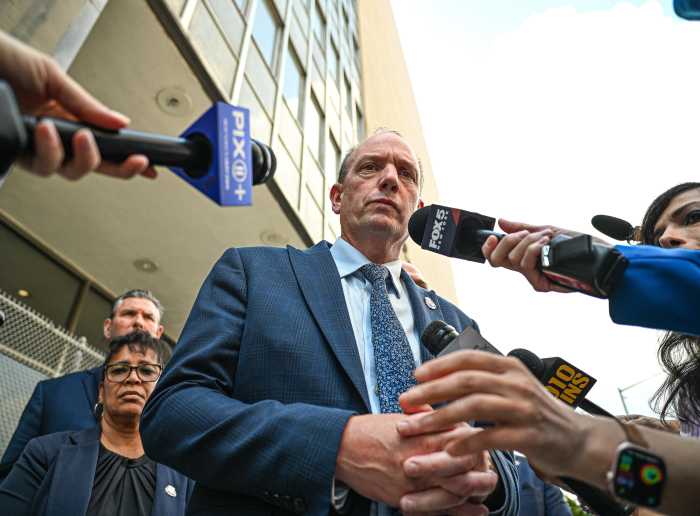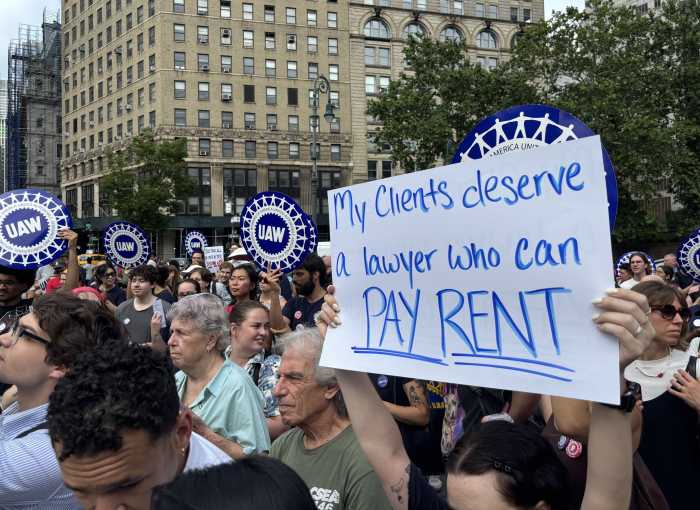
In a move toward more transparency within the NYPD, Mayor Bill de Blasio’s administration announced it plans to seek amendments to a section of the state’s Civil Rights Law that would make disciplinary information about police officers more easily available.
Currently, Civil Rights Law Section 50-a protects records related to a police officer’s performance as confidential. The only way to obtain these records is through a court order or with written consent from the officer to whom the records pertain, according to the mayor’s office.
“This administration is committed to bringing greater transparency to the disciplinary records of law enforcement and other uniformed personnel. The public interest is disserved by State Civil Rights Law Section 50-a in its current, flawed form,” de Blasio said in a statement.
In addition to removing confidentiality protections on disciplinary records, the legislation would continue to require that the records being disclosed are relevant to a specific case, according to guidelines outlined by the mayor’s office on Friday. The legislation should also continue to permit other government agencies — district attorneys, for example — access to disciplinary records.
If the legislation is enacted, the mayor’s office said information from internal NYPD and Civilian Complaint Review Board cases would be posted to the department’s website, including the officer’s name, charges, transcripts and exhibits from the departmental hearing, a summary of the trial judge’s decision and the police commissioner’s final determination in the case.
NYPD Commissioner James O’Neill said he’s in favor of transparency.
“I also believe that making information about disciplinary proceedings public will help us build trust with the community,” O’Neill said in a statement. “It is my hope we can work with the State Legislature and the Governor on the proposed 50-a amendment.”
The announcement comes as O’Neill and the NYPD attempt to improve police-community relations in the city.






























